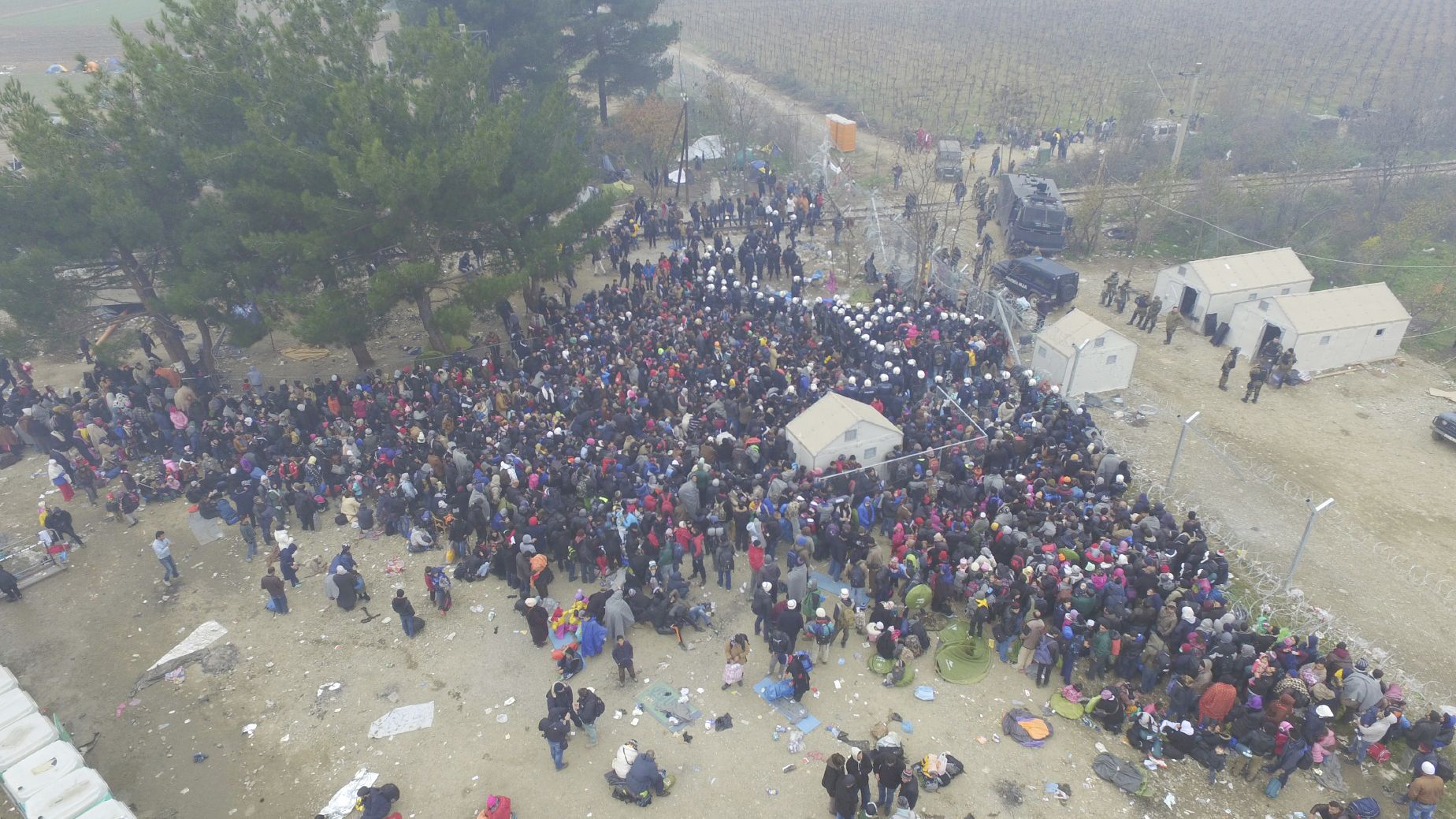Harry Potter wasn’t the first literary figure to suffer the indignity of living in a cupboard. In similar fashion, a child is kept in a broom closet in Ursula K Le Guin’s 1973 short story ‘The Ones Who Walk Away from Omelas’ to perpetually suffer so the citizens of the utopian city Omelas can prosper.
Like Harry’s family, the citizens of Omelas do their best to ignore the existence of the child – the suffering is a price they gladly acquiesce. And now Le Guin’s story – for so long an instigator of classroom debate about morality – is becoming increasingly relevant as an allegory on the ongoing refugee crisis.
Ethical catch-22
In similar fashion to how the innocent child is mistreated outside of public scrutiny, the refugees find themselves facing un-necessarily harsh conditions in asylum centres. Just like the child, if they were allowed to go free, the idyllic utopia would turn to chaos – its joy and prosperity eradicated. It is an ethical catch-22 – and one that carries serious consequences.
With over 1 million refugees arriving in Europe in 2015 alone, the vision of a borderless continent is under extreme pressure, along with unity and politicians. As more switch their support to far-right options, the continent is convulsing in a mixture of fear, sadness, tolerance and xenophobia.
Conflicted emotions
It is a huge dilemma, believes Hans Lucht, an anthropologist at the Danish Institute for International Studies (DIIS).
“The fact that thousands of migrants and refugees drown trying to reach safety is a challenge to Europe’s self-understanding and to our global leadership on humanitarian values,” he told the Copenhagen Post Weekly.
“The majority of people take pity on the refugees, but at the same time legitimately worry what it will mean to their country to receive them.”
Leading the charge
Sine Plambech, a social anthropologist in global transformations at DIIS, stresses the very real differences in the way European countries view the situation and their own responsibility.
“Instead of a unified policy, it has been handled ah-hoc. Little was addressed until it became a catastrophe,” she said.
Countries like Italy and Spain protest that they cannot serve as the gateway to Europe without co-operation and support from their neighbours. Borders and restrictions are popping up everywhere, including Denmark’s controversial bill to permit officials to confiscate asylum-seekers’ valuables in order to pay for their upkeep.
Once a champion of refugees’ rights, the openness and equality that has long defined modern depictions of Scandinavia is waning. Instead it is leading the charge to make Europe a less attractive destination for asylum-seekers.
“Borders are back in Europe,” asserted Lucht. “The real physical borders as well as the more indistinguishable ones – related to documents and travel, socio-economical and racial status.”
Futile measures
Experts agree that the toll, whether measured in lives or money, is harrowing. Close to a thousand migrants have died or disappeared since the beginning of 2016 alone, but public outcry has been muted. It seems that Europe’s moral horizon has simply vanished. Instead of aiming for a unified and humanitarian solution, Europe’s governments have dithered, unable to come up with a common migration and refugee policy.
Experts have warned that Europe’s strategy of avoidance will not work – the masses will continue to flock.
“Spending billions of euros to erect barriers, at sea or on land, will not stop human migration,” Lucht argued in an article in the New York Times. “Desperate people will always resort to desperate measures.”
Plambech agrees. “The migration routes simply become longer and more dangerous,” she said.
“Building walls and erecting boundaries may temporarily redirect them, but then the question is: Where do they go next?”
Unchartered territory
Discovering an exit from this worldview seems an impossible task, and experts have warned there is a long way to go before we see a development in Europe. Widespread media coverage has not prompted a response – rather, the effect has been numbing.
“Sometimes these deaths have the power to shake our political systems – as we saw with the death of Aylan Kurdi – but for the most part we seem to accept their deaths as some kind of necessary evil in the maintenance of a free and prosperous Europe,” contended Lucht.
In terms of the long-term implications, Lucht is unsure.
“We are moving into new territory. Post-war Europe was built on freedom of movement and respect for human rights – both dimensions are now under severe pressure,” he said.
“Article one of The EU’s Charter of Fundamental Rights states that ‘Human dignity is inviolable. It must be respected and protected.’ How does that correspond to what is happening right now in the Mediterranean?”














